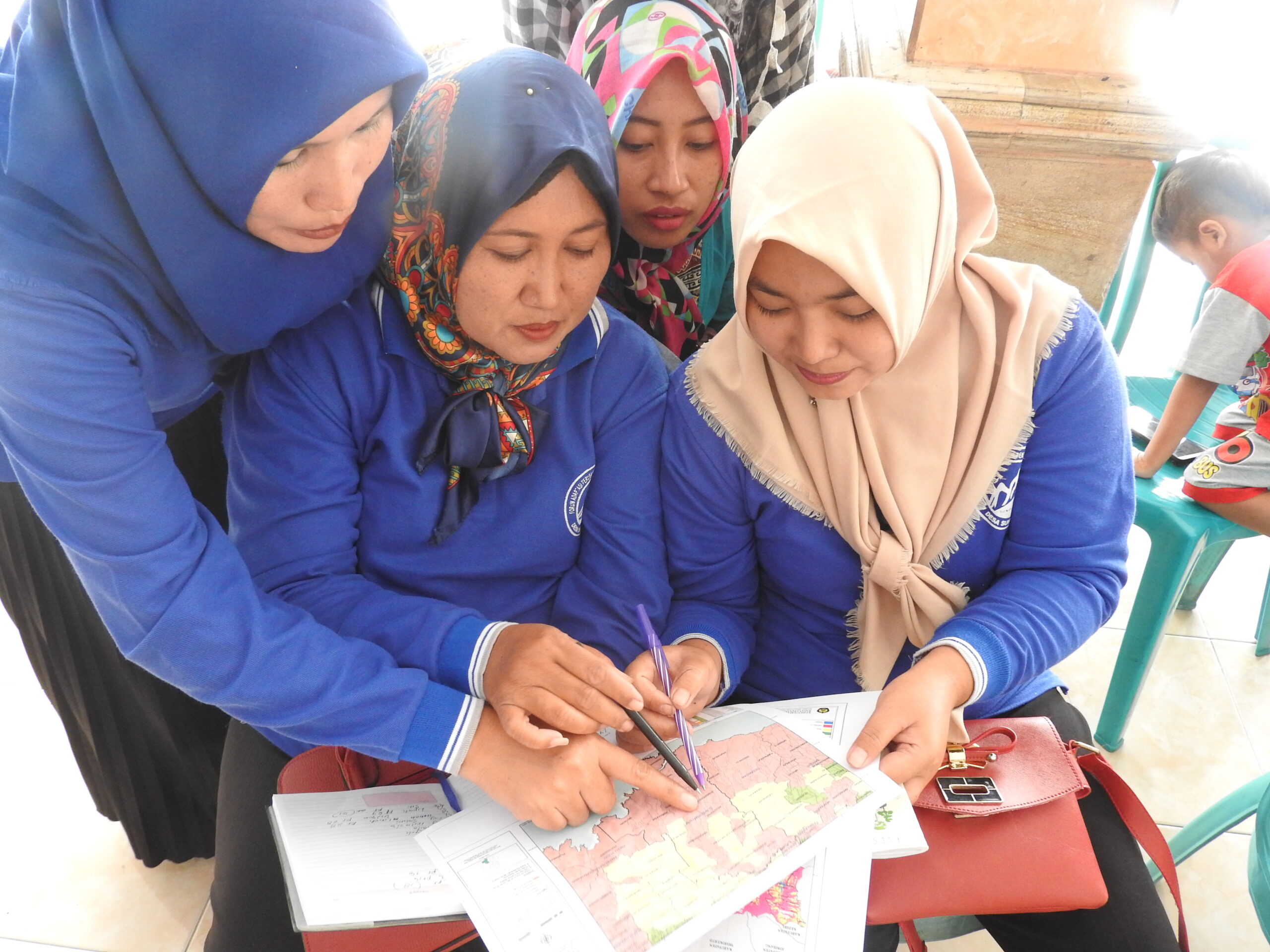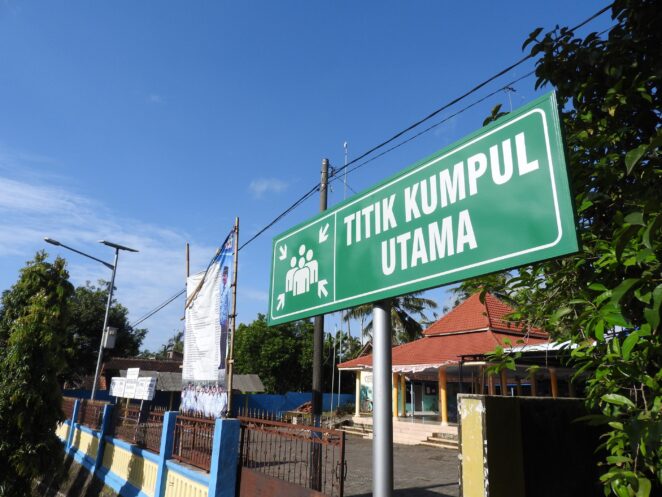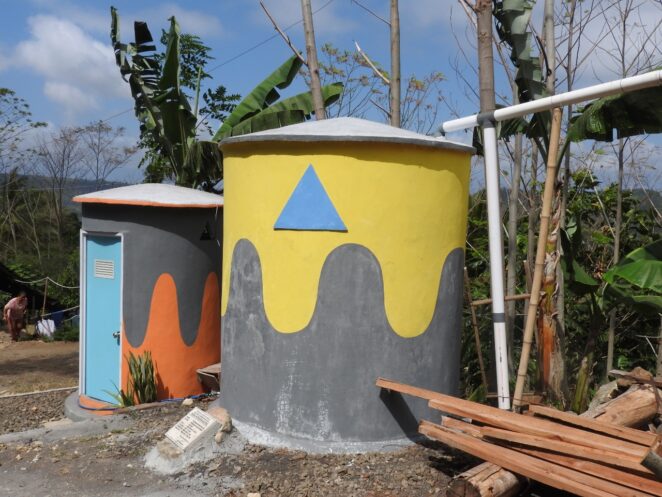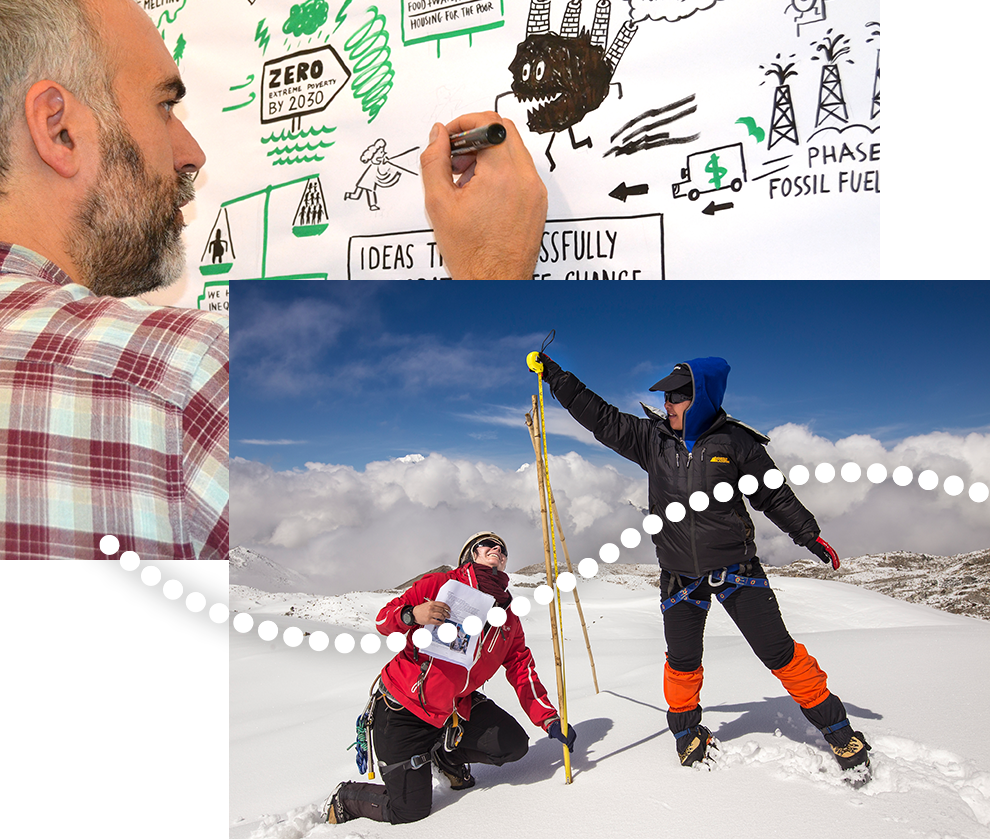Village Development Plan Helps People in Sumberagung to Fight Landslides and Drought

This blog is authored by M. Syaiful Rizal, Field Coordinator Malang District, East Java – USAID APIK and Nyoman Prayoga, Communications Specialist for Knowledge Management and Reporting – USAID APIK. The full report is available to download in Indonesian Bahasa.
Living under the threats of drought and landslide
Amid its potential as a coffee-producing area, Sumberagung Village holds the threat of landslides and drought. Every year, landslides and drought almost always occur in this village that is located in Sumbermanjing Wetan Sub-District, Malang District, East Java, Indonesia. In October 2017, a landslide caused by heavy rainfall for two consecutive days caused 27 families in one neighborhood to be evacuated, two houses were damaged, and people’s activities were disrupted.
In 2017 and 2018, the Local Disaster Management Agency (BPBD) of Malang District included Sumberagung Village as one of nine villages with the highest drought risk in the district. About 1,514 families in Sumberagung have the risk to experience clean water shortages during drought. Buying water becomes the most realistic option for them. Based on interviews, one family can spend IDR 100,000. – (approx. 7-8 USD) to get 2,000-liter water for a week. This condition causes the community, especially women, to queue, buy, and carry liters of water to their homes.
Mainstreaming climate resilience in village planning and budgeting
USAID through Climate Adaptation and Resilience (Adaptasi Perubahan Iklim dan Ketangguhan – APIK) project has worked with the Climate Change Working Group of Malang District (Kelompok Kerja – Pokja) since 2016 for various activities, including the vulnerability and climate risk assessment done in 2017. Following its recommendation, USAID APIK focused on mainstreaming climate adaptation and disaster risk reduction into development planning and policy, including at the village level.
USAID APIK encouraged community participation in building resilience through the establishment of a forum. Through the forum, the community can actively involve in disaster risk assessment and contribute to proposing resilience actions or programs that can be included in the village work plan and budget. Community participation is very crucial to ensure that the proposed programs are in line with their needs.
As a concrete action, USAID APIK provided preparedness training for the community and was followed by the preparation of landslide evacuation routes. Also, the community received training to be able to access and utilize weather and climate information so that they are more alert to the threat of drought or extreme rain.
In 2017, USAID APIK with the Climate Resilience Working Group of Malang District and PATTIRO completed a village resilience assessment that referred to the National Disaster Management Agency (locally known as BNPB) Regulation No.1/2012 on Resilient Village Guidelines. The result of the assessment showed that Sumberagung Village fulfilled the criteria to be included as Resilient Village.
Putting policy and plan into practice
The village government to Sumberagung is now able to continue the efforts in building resilience with its resources. In their 2018 budget, the village government allocated IDR 9,310,000 (approx. USD 703) for disaster preparedness training and installations of evacuation signs in 25 locations. They also allocated IDR 50,739,000 (approx. USD 3,829) for rainwater harvesting tanks to reduce their vulnerability towards drought. In addition, they allocated IDR 7,000,000 (approx. USD 528) for a disaster simulation in their 2019 budget.

“Since the evacuation signs were installed and there was preparedness training held in the village, I now understand what to do and where to go during extreme rainfall when there is an increased risk of landslides,” said Mrs. Suprihani, a farmer in Sumberagung Village. The benefit of this resilience action is also felt by Ismail, a Headmaster in Madrasah Ibtidaiyah (MI – Islamic School equal to Elementary School) Nurul Ulum. “After the rainwater harvesting tanks were installed in our school, the students are now still able to access water during the dry season,” said Ismail.

Suwandi, the Sumberagung Village Secretary also commented on the changes that happened in his village. He described, “After APIK program, now we understand how to build our resilience, especially how to optimize planning and budget to reduce disaster risk.” This becomes a piece of evidence that USAID APIK has contributed to building community resilience from the governance aspect.
In 2019, Sumberagung Village managed to be listed into the Village Innovation Program from the Ministry of Village, Development of Disadvantaged Regions and Transmigration. As part of the program, Sumberagung was invited to participate in the Village Innovation Exchange event in Malang District. This event serves as a knowledge and experience exchange for villages that are seeking inspiration to develop their village development plan. With Sumberagung included in this program, it opens the opportunity of replications in other villages that experience similar climate challenges, particularly drought and landslide.
The need of adequate resilience knowledge, awareness, and evidence
Village governments that deal with climate disasters need to strengthen their conceptual understanding of this issue, increase references to resilience actions, and enhance capacity to integrate the issue into their development planning and budget. USAID APIK realized that the village government was hesitant when it comes to budget allocation to issues that they do not fully understand. They are worried that activities like installing evacuation signs, disaster simulations, rainwater harvesting, etc. have no legal basis. In fact, Law Number 6 of 2014 on Village and its derivative regulations have given villages the authority to independently and democratically respond to the existing problems in their areas, including problems related to disasters and other climate impacts. Reflecting on this experience in Sumberagung Village, USAID APIK has created a guideline for Disaster Resilience and Environment Budgeting at the Village Level in Malang District. This guide has been disseminated to more than 30 villages in Malang District.
Community involvement is also a key change in Sumberagung Village. USAID APIK encourages community participation in planning, problem-solving, decision making, including monitoring and evaluation of the policy and planning implementation. This can increase the sense of ownership and responsibility of the community to oversee joint decisions. When the benefits are felt collectively, the people of Sumberagung Village are increasingly aware of the importance of climate adaptation and disaster risk reduction to their resilience in dealing with drought and landslides.

Comments
There is no contentYou must be logged in to reply.